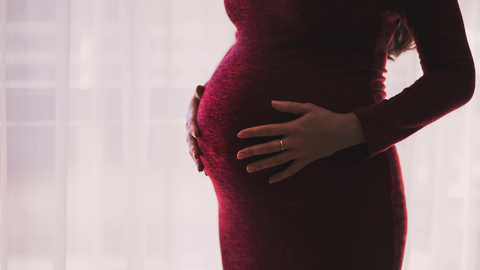Signs of Prenatal-Onset Group B Strep Infection & What You Can Do About It
I would like to take a few minutes to talk about an issue that has affected hundreds of families. Here, I will attempt to describe what prenatal -onset group B strep (GBS) is. Remember that you are the one who has to watch out for your and your baby’s health. You alone can prevent certain things happening to you. As October is approaching, Prenatal -onset Group B Strep Disease Recognition Month, I feel it is important to be informed about how this particular type of bacteria can infect babies not only after birth but during pregnancy.
According to the U.S. Centers for Disease Control and Prevention (CDC), group B strep is a type of bacteria that is carried by about 25% of pregnant women. I do not want to unnecessarily worry you, however, awareness and knowing what to watch for are the first steps you can take to protect yourself and your unborn child against this type of bacteria. Please note that not all babies will become infected with prenatal -onset or early-onset (first week of life) GBS even though you may carry it. Babies are most often infected with group B strep as they pass through the birth canal. However, once born, babies can be infected by this bacteria up to several months of age even by sources other than the mother.
What is GBS?
GBS is a type of bacteria that is naturally found in the digestive and reproductive tracts of both men and women. You may or may not carry it at different points in time. Carrying GBS is, in itself, not necessarily harmful, nor does it mean that you are not a clean person.
I won’t go into detail here as to how babies are infected. My objective here is to make you aware of any signs and symptoms of group B strep and what to do about it. If your baby becomes infected, whether or not the child is stillborn, survives with disabilities or dies a few months later, hopes and dreams are altered and destroyed.
Symptoms of GBS
The symptoms of group B strep infection in babies during pregnancy include decreased or no fetal movement after week 20 of your pregnancy, or if you have any unexplained fever. If you experience either of these symptoms, see your health care provider immediately.
Also, your provider should do a urine culture for GBS and other bacteria at your first prenatal visit. (This is different than the standard prenatal urine “dipstick” check routinely done at each visit.) GBS in your urine means that you may be heavily colonized which puts your baby at greater risk
Although most women carry GBS without any symptoms, see your provider promptly for any symptoms of a bladder or urinary tract infection and/or vaginitis symptoms such as external vaginal burning/irritation and/or unusual discharge.
Also, request that providers DO NOT “strip your membranes” which may push GBS closer to your baby. GBS can cross intact membranes and infect your baby before birth. Unfortunately, many doctors still use this procedure to try to help induce labor. Verbalize your request well before your due date! Make it clear from the start you do not want this procedure done!
GBS Infection Results
What are the results of GBS infecting your unborn child? In some cases, the infant will be miscarried/stillborn, born too early, or become very sick. Some do not pass away but live with blindness, deafness, mental challenges or cerebral palsy. Just to clarify, prenatal does mean “occurring, existing, or performed before birth”. In any pregnancy, it is very important to get prenatal care, even if you feel your pregnancy is a good and healthy one.

